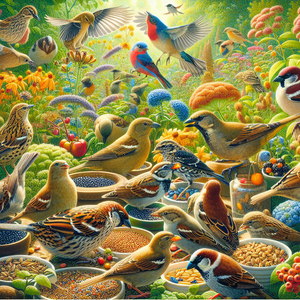The Future of Food: Science Companies Reshaping Agriculture in Austin

Lab-grown meat represents one of the most promising advancements in the food sector, with the potential to significantly mitigate the environmental impact associated with traditional livestock farming. Austin is home to pioneering companies like Eat Just and Sundial Foods, which are at the forefront of this movement. Eat Just has garnered attention for its innovative plant-based products, but its expansion into cultured meat is where the company is truly making waves. Utilizing cellular agriculture techniques, Eat Just cultivates meat from animal cells, effectively eliminating the need for raising and slaughtering animals. This method not only reduces greenhouse gas emissions—estimated to be 96% less than conventional beef production—but also conserves water and land resources. Consumers are increasingly drawn to ethically produced food, making lab-grown meat an attractive alternative that aligns with contemporary values. Sundial Foods, another Austin-based innovator, focuses on creating chicken from animal cells, aiming to provide a sustainable and compassionate alternative to conventional poultry farming. With the global demand for meat projected to rise, lab-grown alternatives will likely become essential in meeting consumer needs while minimizing environmental impact.
Vertical Farming: Growing Upward
Vertical farming is revolutionizing food production by allowing crops to be cultivated in controlled indoor environments, independent of external weather conditions. Companies like Square Roots and Green Spirit Farms are leading this charge in Austin, employing cutting-edge technology to transform urban agriculture. Square Roots utilizes hydroponics and aeroponics systems, which consume significantly less water than traditional farming methods and eliminate the need for harmful pesticides. This innovative approach enables year-round production of fresh produce, enhancing food security in urban areas. Furthermore, by situating farms closer to urban centers, transportation emissions are reduced, and communities gain access to locally grown food. The repurposing of existing buildings for vertical farming also contributes to urban revitalization, providing a sustainable solution to the growing demand for food in cities. Green Spirit Farms focuses on creating scalable vertical farming solutions that can be implemented in various urban environments. Their commitment to resource efficiency and sustainable practices aligns perfectly with the increasing consumer demand for fresh, locally sourced produce.
Sustainable Agricultural Practices
Beyond high-tech solutions, Austin is home to companies committed to integrating sustainable practices into traditional agriculture. AgriLife Research and Blue Sky Biochar exemplify the potential for enhancing soil health and promoting regenerative farming techniques. AgriLife Research, a collaboration between Texas A&M University and local farmers, focuses on developing drought-resistant crops and optimizing irrigation techniques to conserve water. Their efforts are crucial in a climate where water scarcity is becoming a pressing issue. By working to enhance crop yields while preserving natural resources, AgriLife Research is fostering a resilient agricultural ecosystem. Blue Sky Biochar specializes in creating biochar, a carbon-rich material produced from organic waste. When integrated into soil, biochar improves soil fertility and aids in carbon sequestration, making it a powerful tool in combating climate change. By repurposing organic waste and enhancing soil health, Blue Sky Biochar is contributing to a more sustainable agricultural landscape.
The future of food in Austin is being shaped by a diverse array of companies dedicated to innovation and sustainability. From lab-grown meat to vertical farming and sustainable agricultural practices, these organizations are addressing immediate food security challenges while paving the way for a more sustainable food system. As consumers, policymakers, and industry leaders increasingly recognize the importance of these advancements, Austin's role as a hub of agricultural innovation will continue to grow. By supporting and investing in these forward-thinking initiatives, we can work towards a more resilient and sustainable future for food, ensuring that the next generation has access to nutritious and ethically produced meals. The synergy between technology and agriculture in Austin exemplifies how cities can lead the charge in transforming our food systems for the better. As the future unfolds, the innovative spirit of Austin will likely inspire similar movements in other regions, fostering a global shift towards sustainable food practices.
Cultured Meat Scientist
Eat Just, Sundial Foods, Memphis Meats
Core Responsibilities
Conduct research on cellular agriculture techniques to optimize the production of lab-grown meat.
Develop and refine culturing methods to enhance meat flavor, texture, and nutritional profile.
Collaborate with cross-disciplinary teams to advance product formulation and scaling.
Required Skills
Expertise in cellular biology, tissue engineering, or food science.
Strong analytical skills for data interpretation and experimental design.
Experience with bioreactor systems and fermentation technology.
Vertical Farm Operations Manager
Square Roots, Green Spirit Farms, Plenty
Core Responsibilities
Oversee daily operations of vertical farming facilities, ensuring optimal plant health and yield.
Implement and manage hydroponic and aeroponic systems while monitoring environmental conditions.
Train and supervise staff in sustainable farming practices and safety protocols.
Required Skills
Background in agriculture, horticulture, or environmental science.
Proficiency in managing automated farming technology and data management systems.
Strong problem-solving skills and ability to adapt to changing conditions.
Agricultural Sustainability Consultant
AgriLife Research, Blue Sky Biochar, various consultancy firms in agriculture
Core Responsibilities
Advise agricultural businesses on implementing sustainable practices and technologies.
Conduct assessments of soil health and resource management to enhance farm productivity.
Develop training programs for farmers on regenerative agriculture techniques.
Required Skills
Knowledge of agronomy, environmental science, or sustainable agriculture practices.
Strong communication skills for effective training and stakeholder engagement.
Ability to analyze complex agricultural systems and propose actionable solutions.
Food Technology Product Developer
Beyond Meat, Impossible Foods, Eat Just
Core Responsibilities
Research and develop innovative food products, focusing on lab-grown and plant-based alternatives.
Conduct sensory evaluations and market research to align products with consumer preferences.
Collaborate with marketing and sales teams to launch new product lines.
Required Skills
Degree in food science, nutrition, or a related field with experience in product development.
Strong understanding of food processing technologies and regulatory standards.
Creative thinking to develop unique product concepts that meet market needs.
Urban Agriculture Policy Analyst
Non-profits focused on food justice, local government agencies, academic institutions like Texas A&M
Core Responsibilities
Analyze and evaluate policies affecting urban agriculture and food security.
Conduct research on best practices in urban farming and vertical agriculture.
Collaborate with local governments and organizations to promote sustainable food systems.
Required Skills
Background in public policy, urban planning, or environmental studies.
Strong research and analytical skills to interpret data and policy impacts.
Excellent communication skills for presenting findings and recommendations.


